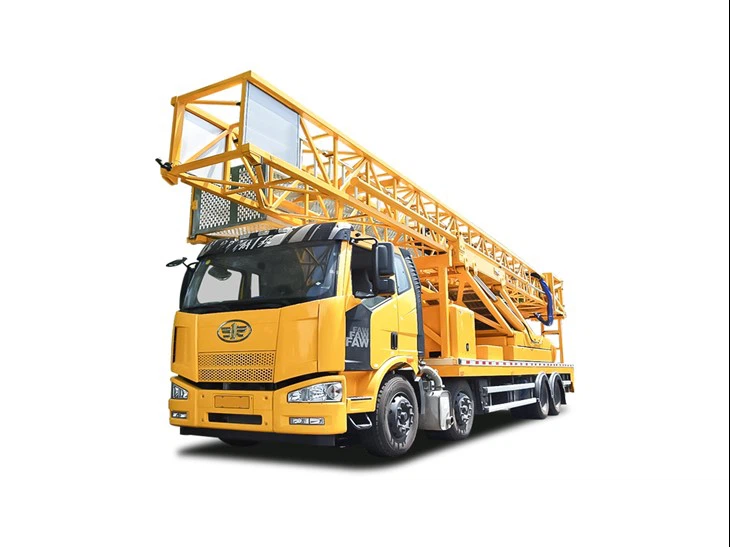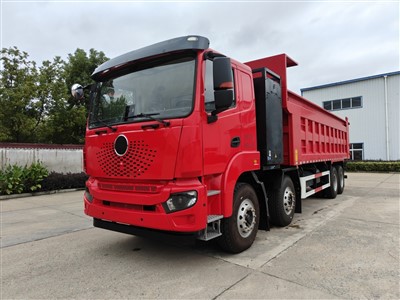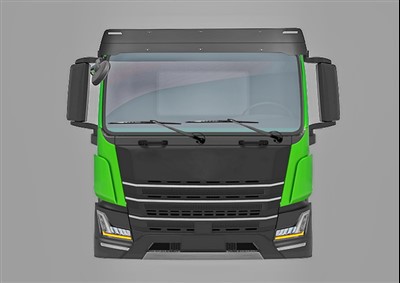Sweeper Trucks: A Comprehensive Guide to Efficient Road Cleaning

Introduction

Sweeper trucks play a vital role in maintaining cleanliness and safety in urban environments. They are essential equipment for cities and businesses to keep streets, parking lots, and other surfaces free from debris, litter, and pollutants. In this article, we will explore the various aspects of sweeper trucks, including their types, features, benefits, best practices for use, and answers to frequently asked questions. Whether you’re a city planner, a contractor, or simply interested in urban maintenance, this guide will provide valuable insights into the world of sweeper trucks.
1. What Are Sweeper Trucks?
Sweeper trucks, also known as street sweepers, are specialized vehicles designed for cleaning and clearing surfaces. They typically come equipped with rotating brushes, vacuum systems, and collection hoppers to effectively remove dirt, leaves, gravel, and other debris from roads and paved areas.
1.1 Different Types of Sweeper Trucks
Sweeper trucks can be categorized into three main types based on their operation:
- Mechanical Sweepers: Use large spinning brushes to sweep debris into a hopper.
- Vacuum Sweepers: Employ suction to remove dirt and particulate matter.
- Combination Sweepers: Combine both mechanical and vacuum capabilities for enhanced cleaning efficiency.
1.1.1 Mechanical Sweepers
These trucks are great for removing larger debris and are typically easier to maintain. They are efficient in dry conditions.
1.1.2 Vacuum Sweepers
Vacuum sweepers excel in picking up fine dust and particles, making them ideal for urban areas with higher pollution levels.
1.1.3 Combination Sweepers
Offering the best of both worlds, combination sweepers can handle a wide variety of debris types and are increasingly popular for municipalities.
2. Key Features of Sweeper Trucks
Modern sweeper trucks come with numerous features designed to maximize their efficiency and performance:
2.1 Adjustable Brushes
Many sweeper trucks come equipped with adjustable brushes that can be raised or lowered to suit different surface conditions.
2.2 Dust Control Systems
Advanced dust control systems help to minimize air pollution by preventing dust from becoming airborne during operation.
2.3 High-Performance Vacuum Systems
Powerful vacuum systems ensure efficient collection of debris, even on uneven surfaces.
2.4 Ease of Operation
User-friendly controls and ergonomic design make sweepers easy to operate, reducing the operator’s fatigue.
3. Applications of Sweeper Trucks
Sweeper trucks are used in various applications that help maintain cleanliness and hygiene:
3.1 Municipal Cleaning
Cities often employ sweeper trucks for routine street cleaning, helping to enhance public aesthetics and safety.
3.2 Construction Sites
Sweeper trucks can be critical for dust control on construction sites, minimizing the impact on surrounding areas.
3.3 Parking Lots
Commercial properties utilize sweeper trucks to maintain clean and presentable parking areas, improving customer experiences.
4. Benefits of Using Sweeper Trucks
Utilizing sweeper trucks offers several advantages:
4.1 Improved Safety
Regular sweeping reduces the risk of accidents caused by debris or poor visibility due to dust buildup.
4.2 Environmental Benefits
By capturing pollutants and debris, sweeper trucks contribute to cleaner air and water systems.
4.3 Enhanced Public Image
A well-maintained environment positively impacts how residents and visitors perceive an area, boosting local pride and business.
4.4 Cost-Effective Maintenance
Investing in sweeper trucks can lead to long-term savings by preventing the deterioration of infrastructure caused by debris accumulation.
5. Best Practices for Using Sweeper Trucks
To ensure optimal performance and longevity of sweeper trucks, consider the following best practices:
5.1 Regular Maintenance
Performing regular maintenance checks on the sweeper’s systems, brushes, and vacuum can prevent costly repairs and downtime.
5.2 Operator Training
Providing thorough training for operators improves safety and ensures the vehicles are used to their full potential.
5.3 Scheduling Sweeping Services
Creating a regular schedule for sweeper operations can maximize effectiveness and ensure consistent cleanliness throughout the municipality or business.
5.4 Choose the Right Sweeper
Selecting the appropriate type of sweeper truck for the specific application is crucial for optimal cleaning performance.
6. Cost Considerations for Sweeper Trucks

Understanding the costs associated with sweeper trucks is important for budgeting. Here are key pricing factors:
6.1 Purchase vs. Rental
Deciding between purchasing and renting sweeper trucks varies based on frequency of use and budget. Here’s a quick comparison:
| Criteria | Purchase | Rental |
|---|---|---|
| Initial Cost | High | Low |
| Maintenance Responsibility | Owner | Provider |
| Long-Term Commitment | Yes | No |
| Availability for Use | Always | Depends on Provider |

6.2 Operating Costs
Consider additional operating costs such as fuel, insurance, and maintenance when budgeting for sweeper trucks.
6.3 Staffing Costs
Management of sweeper trucks also includes staffing costs for drivers and maintenance personnel.
7. Technology Trends in Sweeper Trucks
With constant advancements in technology, sweeper trucks are becoming more efficient:
7.1 GPS Tracking
GPS technology allows for tracking the route taken by sweeper trucks, optimizing their efficiency and effectiveness.
7.2 Eco-Friendly Models
Emerging eco-friendly models are designed to reduce emissions and fuel consumption, contributing to sustainability efforts.
7.3 Automation
Automation technology, including remote operations and advanced sensors, is starting to play a role in enhancing the operation of sweeper trucks.
8. Case Studies: Successful Sweeper Truck Implementations
Examining successful implementations of sweeper trucks provides practical insights:
8.1 City of San Francisco
The City of San Francisco utilizes a fleet of combination sweepers to maintain their streets, achieving cleaner urban spaces and better air quality.
8.2 Major Construction Site in New York
A leading construction site in New York implemented vacuum sweepers to control dust during operations, significantly reducing complaints from nearby residents.
9. FAQ Section
9.1 What is the average cost of a sweeper truck?
The cost of sweeper trucks can vary significantly, typically ranging from $150,000 to $300,000 for new units, while used models may be less expensive depending on condition and age.
9.2 How often should streets be swept?
The frequency of street sweeping depends on the location and level of traffic, but many municipalities aim to sweep streets at least once a month.
9.3 Can sweeper trucks operate in inclement weather?
Most sweeper trucks can operate in light rain, but heavy rain or snow may hinder effectiveness and should be avoided for optimal cleaning results.
9.4 Are there environmental regulations regarding sweeper trucks?
Yes, many regions enforce environmental standards for emissions and operation. It’s important for operators to stay compliant with local regulations.
9.5 What maintenance is required for sweeper trucks?
Regular maintenance includes checking fluids, inspecting brushes and vacuum systems, and ensuring tires are in good condition.
9.6 How do I choose the right sweeper truck for my needs?
Consider factors such as the surfaces you’ll be cleaning, the types of debris typically encountered, and whether you need mechanical, vacuum, or combination capabilities.
